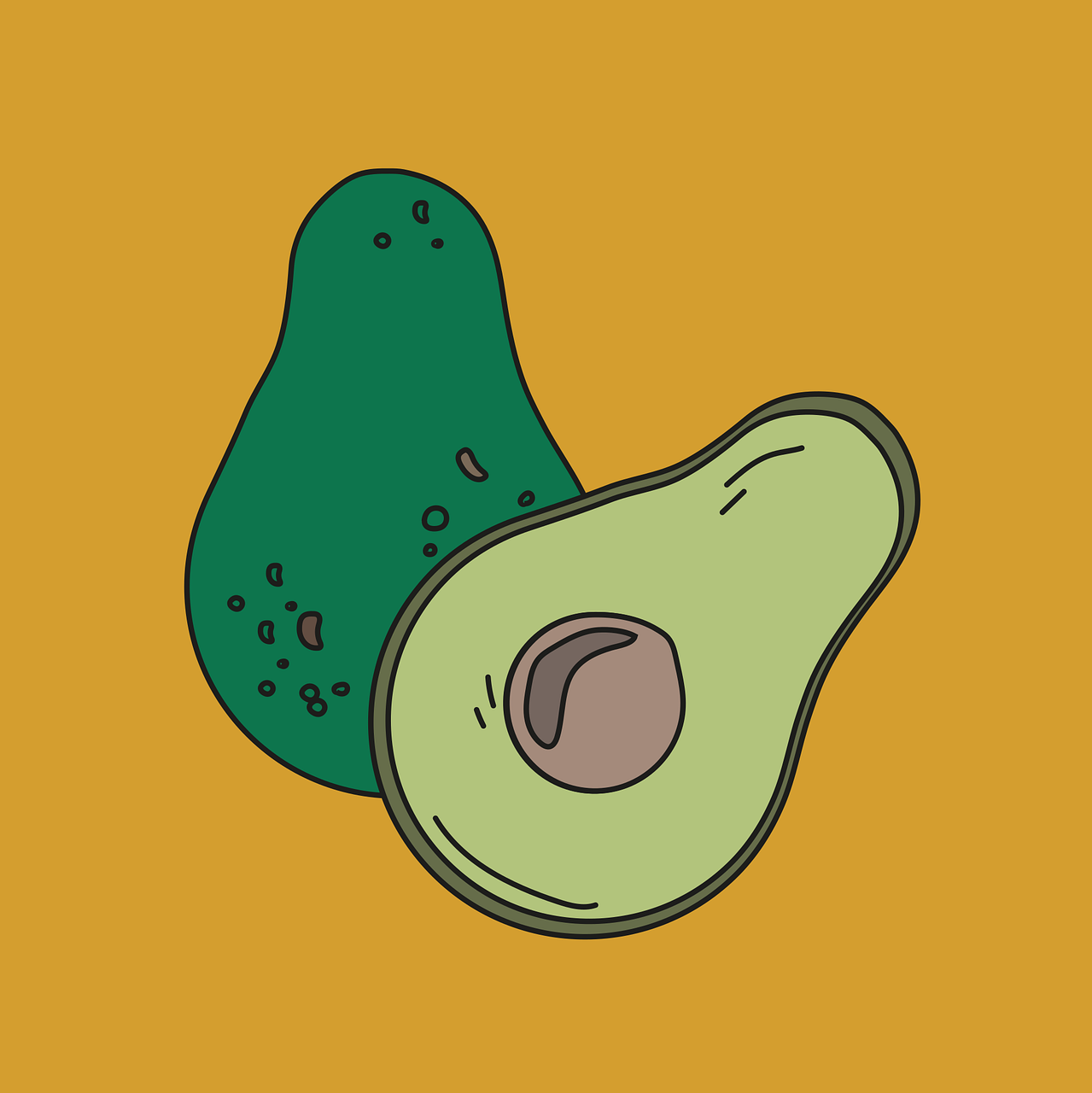Have you ever wondered how to curb your sugar cravings and maintain a healthier lifestyle? If so, you’re not alone. In this article, we will explore effective strategies and practical tips to help you avoid consuming excessive amounts of sugar. Whether you’re motivated by weight loss, improving overall health, or reducing your risk of chronic diseases, you’ll find valuable insights and actionable advice to navigate the tempting world of sugar-laden foods. So, let’s embark on this journey together and empower ourselves to make healthier choices for a sweeter, yet balanced, life.
Understanding the Dangers of Excessive Sugar Consumption
Excessive sugar consumption can have a significant impact on your health. When you consume too much sugar on a regular basis, it can lead to weight gain, increased risk of chronic diseases such as obesity, type 2 diabetes, heart disease, and certain types of cancer. Additionally, consuming excessive amounts of sugar can also negatively affect your energy levels, mood, and dental health.
Impact of Sugar on Health
Sugar can have a detrimental effect on your overall health. When you consume sugar, especially in the form of added sugars, it causes a rapid spike in your blood sugar levels. This spike is followed by a crash, which can leave you feeling fatigued and craving more sugar. Over time, this cycle of sugar consumption can contribute to insulin resistance, a condition where your body becomes less responsive to insulin and can lead to the development of type 2 diabetes.
Moreover, excessive sugar consumption can also lead to weight gain. Sugary foods and beverages are often high in calories but low in nutritional value, causing you to consume more calories than your body needs. This excess energy is then stored as fat, leading to weight gain and an increased risk of obesity.
Added Sugar vs. Natural Sugar
It’s essential to understand the difference between added sugar and natural sugar. Natural sugar is found in foods such as fruits, vegetables, and dairy products. These foods also provide essential nutrients, fiber, and antioxidants. On the other hand, added sugars are sugars that are added to processed foods and beverages during manufacturing or preparation.
The main difference between natural sugar and added sugar is the way your body processes them. Natural sugars are typically accompanied by fiber, which slows down the absorption of sugar into your bloodstream, preventing rapid spikes in blood sugar levels. Added sugars, however, are often consumed without any accompanying nutrients or fiber, leading to a more significant impact on your blood sugar levels.
Recommended Daily Intake of Sugar
The American Heart Association recommends limiting your daily intake of added sugars to no more than 25 grams for women and 36 grams for men. It’s essential to be mindful of your sugar intake and read food labels to identify hidden sources of sugar in your diet.
Identifying Hidden Sugars in Food
To effectively reduce your sugar intake, it’s crucial to identify hidden sugars in your food. Many processed foods and beverages contain added sugars, even ones that may not taste particularly sweet. This makes it challenging to estimate your sugar intake accurately. Reading food labels can help you identify hidden sources of sugar and make informed decisions about the products you consume.

Reading Food Labels
When reading food labels, look out for different names for added sugars. Some common names for added sugars include sucrose, corn syrup, high-fructose corn syrup, molasses, and dextrose. By familiarizing yourself with these names, you can easily identify when a product contains added sugars.
Additionally, pay attention to the order in which ingredients are listed on food labels. Ingredients are listed in descending order by weight, so if sugar is one of the first ingredients, it indicates that the product contains a significant amount of added sugars.
Making Informed Food Choices
Making informed food choices is crucial for reducing your sugar consumption. By opting for whole foods and choosing unsweetened options, you can significantly reduce your intake of added sugars.
Opting for Whole Foods
Whole foods, such as fruits, vegetables, lean proteins, and whole grains, should form the basis of your diet. These foods provide essential nutrients, fiber, and antioxidants while naturally containing less sugar than processed foods. By filling your plate with whole foods, you can ensure a more balanced and nourishing diet.
Choosing Unsweetened Options
When selecting food products, opt for unsweetened options whenever possible. This applies to items such as yogurt, oatmeal, and nut butter, which often have added sugars. By choosing unsweetened versions, you have more control over your sugar intake and can add natural sweetness, such as fresh fruit, if desired.
Selecting Low-Sugar Alternatives
If you have a sweet tooth but want to reduce your sugar intake, there are many low-sugar alternatives available in the market. For example, instead of sugary desserts, you can choose snacks like dark chocolate with a high cocoa content or naturally sweetened fruit bars. These alternatives can satisfy your cravings while providing less sugar and additional health benefits.

Replacing Sugary Beverages
Sugary beverages, such as soda, fruit juices, and sweetened coffee drinks, can contribute a significant amount of added sugars to your diet. Replace these beverages with healthier alternatives like water, unsweetened tea, or flavored water infused with fruits or herbs. By swapping out sugary drinks, you can reduce your sugar intake and increase your hydration.
Planning and Preparing Meals
Meal planning and portion control are essential strategies for maintaining a healthy diet and reducing your sugar consumption.
Meal Prepping and Portion Control
Meal prepping involves planning and preparing meals in advance, ensuring that you have healthy options readily available. By meal prepping, you can control the ingredients and portion sizes of your meals, making it easier to avoid excessive sugar consumption. Portion control is another crucial aspect of meal planning, as it helps prevent overeating and excessive calorie intake.
Including Protein and Fiber
When planning your meals, prioritize including sources of protein and fiber. Protein helps keep you feeling full and satisfied, reducing the likelihood of reaching for sugary snacks. Meanwhile, fiber slows down the absorption of sugars and promotes digestive health. By incorporating protein and fiber-rich foods into your meals, you can help manage your blood sugar levels and reduce sugar cravings.
Practicing Mindful Eating
Practicing mindful eating involves being present and fully engaged with your meal. Slow down, savor each bite, and pay attention to your body’s hunger and fullness cues. By eating mindfully, you can better control your portion sizes and reduce mindless snacking, which often involves reaching for sugary foods.

Building a Balanced Plate
Building a balanced plate is essential for ensuring you’re getting the necessary nutrients while minimizing your sugar intake.
Emphasizing Fruits and Vegetables
Fruits and vegetables should make up a significant portion of your plate. They are low in calories and high in essential vitamins, minerals, and fiber. Additionally, fruits can satisfy your sweet tooth naturally while providing additional health benefits. Aim to fill half of your plate with a variety of colorful fruits and vegetables to ensure a nutrient-rich and low-sugar meal.
Incorporating Whole Grains
Whole grains, such as quinoa, brown rice, and whole wheat bread, provide more fiber, nutrients, and complex carbohydrates compared to refined grains. These complex carbohydrates are broken down more slowly in your body, leading to a steady release of sugar into your bloodstream, preventing rapid spikes in blood sugar levels.
Including Lean Proteins
Including protein in your meals is vital for maintaining muscle mass, promoting satiety, and managing blood sugar levels. Choose lean protein sources, such as chicken, fish, tofu, or legumes, which provide essential amino acids without the added sugars often found in processed meats.
Incorporating Healthy Fats
Contrary to popular belief, healthy fats are an essential part of a balanced diet. Including sources of healthy fats, such as avocados, nuts, seeds, and olive oil, in your meals can help keep you feeling full and satisfied. Healthy fats also slow down the absorption of sugar, providing a more stable energy source.

Controlling Sugar Cravings
Controlling sugar cravings can be challenging, but with the right strategies, you can reduce your cravings and make healthier choices.
Understanding Triggers
Identify the triggers that lead to your sugar cravings. For some, stress, boredom, or certain emotions can trigger a craving for sugary foods. By recognizing these triggers, you can find alternative ways to cope with them, such as going for a walk, practicing deep breathing exercises, or engaging in a favorite hobby.
Finding Healthier Alternatives
When cravings strike, opt for healthier alternatives instead of reaching for sugary snacks. For example, instead of reaching for a candy bar, enjoy a piece of fruit or a handful of nuts. These alternatives provide natural sweetness and additional nutrients, satisfying your cravings while keeping your sugar intake in check.
Mindful Snacking
Mindful snacking involves being aware of your hunger levels and making intentional choices. Instead of mindlessly snacking on sugary treats, portion out a serving of a healthy snack, such as veggies with hummus or Greek yogurt with berries. By snacking mindfully, you can prevent excessive sugar consumption and maintain better control over your overall diet.
Establishing Healthy Habits
Establishing healthy habits is crucial for long-term success in reducing your sugar consumption.

Creating a Meal Schedule
Create a meal schedule that works for you and stick to it. Establishing set times for meals and snacks can help regulate your hunger levels and prevent impulsive eating, including reaching for sugary foods. By setting a routine, you create structure and promote healthier habits.
Keeping a Food Diary
Keeping a food diary can provide valuable insights into your eating habits and help you identify patterns. By recording everything you eat and drink, including the amount and time of consumption, you can gain a better understanding of your sugar intake and make necessary adjustments to reduce your consumption.
Strategies for Dining Out
Dining out can present challenges in controlling your sugar intake, but with the right strategies, you can make healthier choices. Consider reviewing the menu and selecting options that align with your goals, such as dishes with lean protein, vegetables, and whole grains. Additionally, ask for dressings and sauces on the side to control your sugar intake further.
Staying Hydrated
Staying properly hydrated is crucial for your overall health and can help reduce cravings for sugary beverages.
Benefits of Drinking Water
Water is essential for maintaining proper bodily functions and can help regulate your appetite. Drinking an adequate amount of water throughout the day can help curb your sugar cravings and ensure that you stay hydrated.
Infusing Water with Fruits or Herbs
If you find plain water boring, try infusing it with fruits or herbs for a refreshing and flavorful alternative. Infused water provides a hint of natural sweetness without the added sugars found in many flavored beverages. Experiment with different combinations, such as cucumber and mint, lemon and ginger, or berries and basil, to find your favorite infused water flavors.
Reducing Sugary Drink Consumption
Sugary drinks, such as soda, sports drinks, and energy drinks, are often a significant source of added sugars in many people’s diets. Gradually reduce your consumption of these beverages by replacing them with healthier alternatives like water, unsweetened tea, or naturally flavored water. Over time, your taste preferences will adjust, and you’ll find yourself craving sugary drinks less frequently.
Getting Regular Physical Activity
Regular physical activity is not only essential for maintaining a healthy weight and improving cardiovascular health, but it can also help regulate your blood sugar levels and reduce sugar cravings.
Exercise and Blood Sugar Regulation
Engaging in physical activity helps your body use glucose more effectively. During exercise, your muscles utilize glucose as fuel, reducing the amount of sugar in your bloodstream. Regular exercise can also improve insulin sensitivity, making your body more responsive to insulin and better able to control blood sugar levels.
Finding Activities You Enjoy
To make physical activity a regular part of your routine, it’s important to find activities that you enjoy. Whether it’s dancing, swimming, hiking, or cycling, engaging in activities that you genuinely find enjoyable increases the likelihood that you’ll stick with them long-term.
Incorporating Movement into Daily Routine
In addition to dedicated exercise sessions, incorporating movement into your daily routine can help reduce sedentary behavior and promote overall health. Take breaks to stretch or walk around the office, choose stairs over elevators, or bike to work if possible. Finding small ways to increase your daily movement can add up and contribute to a healthier lifestyle.
Seeking Support and Accountability
Seeking support and accountability can significantly increase your chances of successfully reducing your sugar consumption.
Enlisting the Help of a Nutritionist or Dietitian
A nutritionist or dietitian can provide personalized guidance and support in reducing your sugar consumption. They can assess your specific dietary needs, help you create a balanced meal plan, and offer strategies to overcome challenges and cravings.
Joining a Support Group
Joining a support group or finding a community of individuals with similar goals can provide valuable encouragement and motivation. Sharing experiences, recipes, and tips with others who are also striving to reduce their sugar intake can help you stay on track and overcome obstacles.
Tracking Progress and Celebrating Achievements
To stay motivated, track your progress and celebrate your achievements along the way. This can be as simple as recording your daily sugar intake, noting how you felt after making healthier choices, or setting achievable goals to reduce your sugar consumption gradually. Recognizing your progress and celebrating your achievements, no matter how small, can keep you motivated and on the path to long-term success.
By understanding the dangers of excessive sugar consumption, identifying hidden sugars in foods, making informed food choices, planning and preparing meals, building a balanced plate, controlling sugar cravings, establishing healthy habits, staying hydrated, getting regular physical activity, and seeking support and accountability, you can successfully avoid eating too much sugar and prioritize your overall health and well-being. Remember, small changes can lead to significant results, and with dedication and perseverance, you can make a positive impact on your sugar consumption and overall health.






